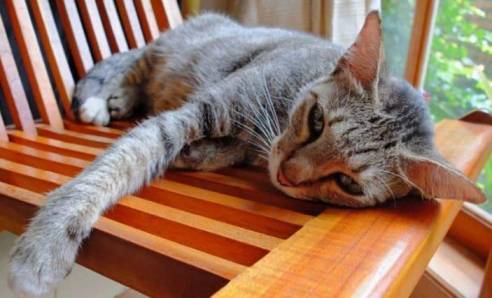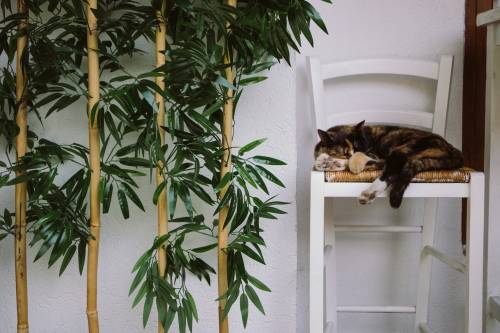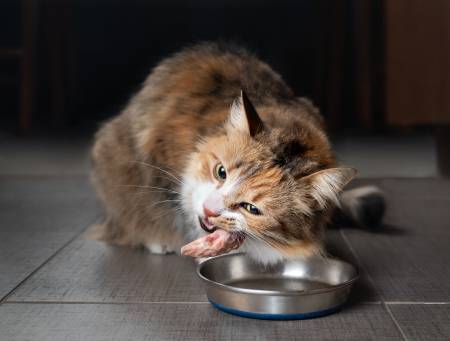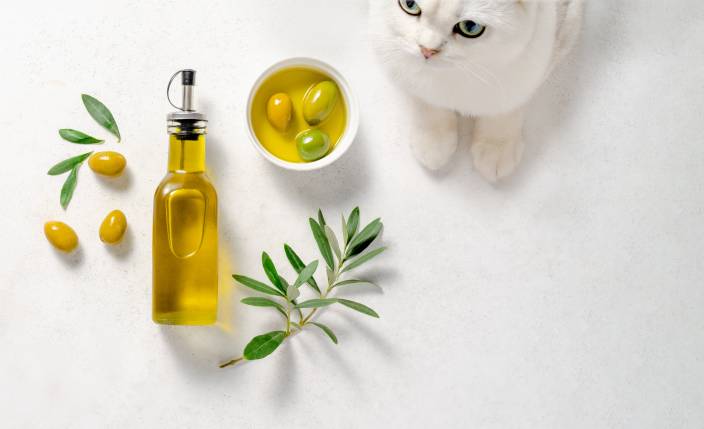Connect with a verified veterinarian in minutes. Licensed vets are available 24/7 to answer your questions. No need to worry about your furry family member.
Do you take vitamin D? Many of us do, especially those who have conditions where the body doesn’t produce enough vitamin D on its own.
Has your cat eaten one of your vitamin D pills? Are you worried the vitamin D will make your cat sick? We understand it’s scary when our fur babies eat something they shouldn’t.
For this reason, we’ve put together some helpful information about vitamin D and whether or not it can make your cat sick. Let’s get started!
What is Vitamin D?
Vitamin D is a fat-soluble vitamin that is the same as vitamin D that is found in food. It’s used as a dietary supplement for those who don’t get enough vitamin D in their diet or for people who have conditions that keep their body from making enough vitamin D.
This is an important vitamin, as it helps the body to absorb calcium for normal bone growth and to prevent muscle spasms and cramps. It is also responsible for increasing intestinal absorption of magnesium and phosphate, all important for the healthy maintenance of teeth, muscles and bones. Vitamin D also helps older people keep from developing osteoporosis. What’s more, the vitamin works to reduce inflammation and modulate cell growth, neuromuscular and immune function.
While vitamin D is healthy for us, what happens if our cat eats vitamin D?
Vitamin D & Cats
If a cat eats too much vitamin D, this can lead to vitamin D poisoning. Too much vitamin D in the system increases the amount of calcium and phosphorus, which leads to hypercalcemia, which can cause hardening of the lungs, stomach wall, kidneys, and blood vessels. This can lead to kidney failure, heart problems, and internal bleeding. Acute vitamin D poisoning can occur when cats eat rat or mouse poison (rodenticides) containing cholecalciferol or ingest large amounts of vitamin D supplements in one go.

Review symptoms, medications & behavior to keep your pets healthy with a Vet Online in just minutes.
Ask a Vet Live NowSymptoms of Vitamin D Toxicity in Cats
You may notice these symptoms if your cat has ingested vitamin D:
- Excessive thirst
- Excessive urination
- Lack of appetite/refusal to eat
- Depression
- Internal bleeding
- Vomiting
- Nausea
If you know your cat has eaten vitamin D, then call the vet immediately. This is a medical emergency. Don’t wait for symptoms to appear, which can take anywhere from 8-12 hours. Your cat needs to be treated as soon as possible.
Treatment of Vitamin D Toxicity in Cats
Your vet will perform a complete physical exam of your cat. They will also run lab work to check your cat’s organ functions, as well as to determine if your cat has developed internal bleeding.
Treatment depends on the amount ingested and the time since ingestion occurred. It might involve induction of vomiting if the vitamin D was eaten recently. Another option is to use activated charcoal, which keeps your cat’s body from absorbing the vitamin. In addition, your cat will probably require IV fluids and other medications to treat symptoms as they arise.
Your cat will probably require hospitalization for a few days until he’s stable.
The prognosis for this type of poisoning in cats is not very good, even if the cat receives fast medical treatment. Early decontamination lower the risk of serious toxicity. The best you can do is call your vet and get your cat there as soon as possible. Don’t wait for symptoms to set in. Your cat may have a better chance of surviving the sooner he’s treated.
Connect with a verified veterinarian in minutes. Licensed vets are available 24/7 to answer your questions. No need to worry about your furry family member.

Emma Chandley, BVetMed MRCVS PGCertSAS
This article has been reviewed and approved by an independent Veterinarian: Emma graduated from the Royal Vet College in London in 2011. She has a keen interest in surgery and went on to do a post graduate certificate in small animal surgery and was then awarded advanced practitioner status in the same discipline.
Review symptoms, medications & behavior to keep your pets healthy with a Vet Online in just minutes.
Ask a Vet Live Now





